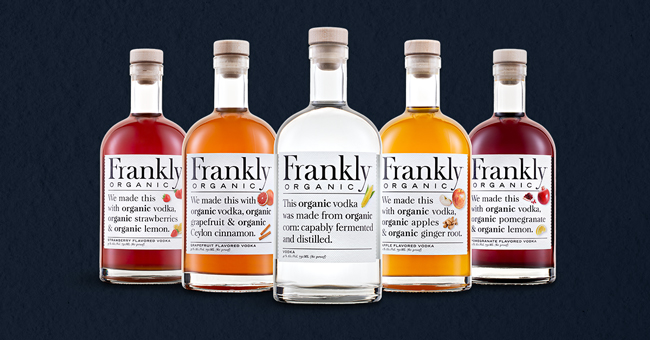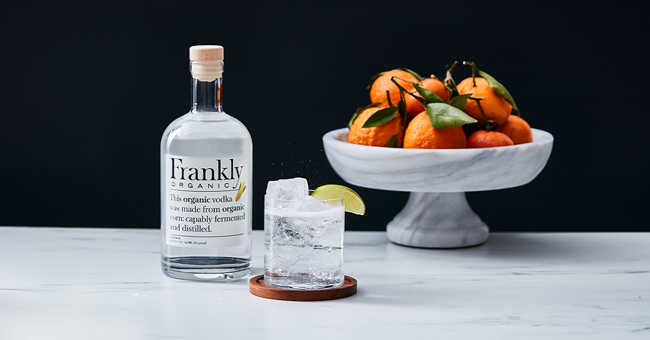When Phillips Distilling Co launched Prairie Organic Spirits in 2008, organic was an emerging trend, according to Meghan Murray, director of commercial marketing. Over a decade later, that mostly still holds true.
“Organic spirits are still a small but very growing part of the spirits industry,” she said.
That’s in sharp contrast to organic food, where sales rose nearly 13% to $56.5 billion in 2020, according to the Organic Trade Association. Currently, Prairie Organic Spirits is distributed in all states and sells 100,000 cases per year, and is among the top selling organic brands on Drizly. By comparison, Tito’s, the leading vodka in the U.S., sold 10 million cases in 2020.
But brands like Prairie Organic Spirits are hoping they’ll be the ones well positioned to meet an increasing consumer interest in sustainable and wellness-oriented products. “We’re confident that we will be in the right place when organic is discovered by the consumer,” said Andy England, Chief Executive Officer of Phillips Distilling Co.
That might not be too far off, and organic might just be a piece of it. According to market research firm IWSR, 48% of U.S. alcohol drinkers say their purchase decisions are positively influenced by a company’s sustainability or environmental initiative. Meanwhile, better-for-you beverages like no-alcohol and low-alcohol spirits are fast growing trends.
“While the organic spirits market remains relatively small, it represents a growing area of opportunity as consumers increasingly seek out better-for-you and sustainably-positioned food and drink products with health appeal and a from-nature narrative,” said Claire Lancaster, Senior Strategist of Food & Drink at trend forecasting company WGSN.
An organic label is not the only way brands are attempting to reach environmentally or more health conscious spirit drinkers, but it may cut through the marketing noise — especially in a crowded segment. For Prairie, going organic was a key way to differentiate a product in the largest spirits category, according to England.
“There are some categories that are differentiated by product benefits; vodka is primarily distinguished by positioning, and organic is a real product point of difference,” he said.
Because of its size, the founders of Austin-based Frankly Vodka also saw room in the vodka category for an organic and flavored spirit featuring real botanicals and produce. Launched in 2018, the brandand is now distributed in 38 states with an annual growth rate of 124%. As a devoted organic consumer, using organic ingredients was a priority for Kristen Risk, Co-Founder and SVP of Marketing Communications.
“I think the word natural doesn’t have clear defined parameters to it, and a sustainable product has different parameters as well, which we are. But in the organic space, USDA certification has a really significant amount of steps to the process. It also validates our products more than anything else,” she said.
An organic certification indicates that products are grown and processed according to certain standards and regulations addressing anything from soil quality to eliminating artificial colors and preservatives. While an organic label implies that certain ingredients aren’t used, distillers aren’t legally required to list their ingredients on bottles, a factor that may contribute to why the certification hasn’t generated the same momentum in spirits as it has in food or CPG at large.
“The spirits industry doesn’t have the same transparency requirements as the rest of the food and beverage industries. So I don’t think that consumers have been taught to even look at what’s in their beverage and what they are drinking,” said Risk.
For smaller brands, building that awareness is part of their challenge, but that could be changing as millennials and Gen Z are seeking out producers that share their ethical and environmental values. Spirits entrepreneurs might also look to organic wine and natural wine as a trend-setter for the rest of the beverage industry.
“Natural wine, including organic, biodynamic and regenerative offerings, which also represents these rising consumer values, has seen steady consumer interest in recent years. Spirits are set to follow a similar trajectory as more producers invest in organic and regeneratively-farmed grains, or in the case of tequila, agave,” said Lancaster.
She added that the firm also anticipates increased interest in regenerative spirits, which go beyond organic designations and existing ideas of sustainability to actually regenerate and restore the environment. There are a growing number of bodies that offer regenerative certification, although each with different criteria. Regenerative spirits are made from ingredients grown with farming practices that restore biodiversity or help sequester carbon, for instance. Some include meeting existing certifications for social fairness, such as Fair Trade Certified.
Going organic is not without challenges for producers: getting certification is a costly and time-consuming process that requires access to organic ingredients, like grains, which have limited availability. For Frankly Vodka and Prairie Organic Spirits, beginning with an organic vision allowed them to factor in costs and suppliers from the start, and meet their desired retail price, which both hover around $20.
But it’s important to note that organic is not synonymous with sustainable, as the certification process doesn’t regulate areas outside of sourcing and growing ingredients. That’s part of why businesses— and consumers— should look at the entire spectrum of sustainability, according Shanna Farrell, author of A Good Drink: In Pursuit of Sustainable Spirits, which investigates some of the most sustainably advanced distillers.
Newer, more nimble distillers may be able to build their facilities from scratch to reduce their carbon footprint or be more energy efficient, while implementing changes throughout the infrastructure of an established spirit company could require more work. Additionally, limited availability may push a distiller to prioritize local crops over organic.
“I’m seeing that distillers are having these conversations and trying to figure out what makes sense for them as a business and where are the areas that they can push a little bit further,” she said.

